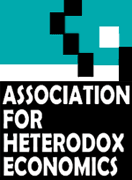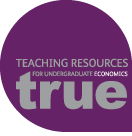Pluralism in the economics curriculum
This booklet gives examples of three ways in which economics can be taught pluralistically in a university course:
1. Enriching an ‘orthodox’ module
This approach uses heterodox concepts to shed new light on orthodox concepts essentially following a standard textbook treatment augmented by heterodox material. This ‘orthodox-plus’ approach is probably the most common form of ‘heterodox’ module, given that most undergraduate teaching is orthodox and opportunities to teach exclusively heterodox material are limited.
2. A module that focuses on an alternative system of thought
For example, a module might aim to provide students with a rich understanding of the way of thinking found either in a specific strand of heterodox thought, such as Marxism, Post-Keynesianism; or in a synthesised heterodox approach to, say, microeconomics. These modules are rare in the UK and remain unusual in other countries, such as the USA.
3. Teaching orthodox and heterodox economics as ‘contending perspectives’
A series of topics of interest or theoretical concerns are taught first from one perspective, then from the other, allowing comparison. Barone (1991) describes an entire programme organised around this principle. The new programme at Greenwich is designed along these lines.
It can be read in conjunction with the chapter “Teaching Heterodox Economics and Pluralism” in the Handbook for Economics Lecturers, where the three approaches are discussed in sections 2, 3, and 4 respectively. Alternatively, you might already be persuaded of the virtue of diversifying the curriculum and want more specific examples of what has been tried in universities.
For the purpose of this document, heterodox means neither simply ‘non-orthodox’ nor ‘non-neoclassical’. Nor is it defined merely in terms of new versus old, i.e. new economic research versus old textbook theory. Rather, it constitutes a set of key characteristics found in the writings of heterodox economists. A summary of these is presented in Figure 1.
Figure 1: A non-exhaustive series of heterodox principles
- Methodology (rather than just method) is important to understanding economics.
- Human actors are social and less than perfectly rational, driven by habits, routines, culture and tradition.
- While theories of the individual are useful, so are theories of aggregate or collective outcomes. Further, neither the individual nor the aggregate can be understood in isolation from the other. The micro/macro distinction may be invalid.
- Economic systems are complex, evolving and unpredictable – and consequently equilibrium models should be viewed sceptically.
- History and time are important (reflecting (4)).
- All economic theories are fallible and, reflecting (4), there is contemporary relevance of the history of thought to understanding economics.
- Pluralism, i.e. multiple perspectives, is advocated (following on from (4) and (6)).
- Formal mathematical and statistical methods should not be presumed to be superior. Other methods and data types are valuable.
- Facts and values are inseparable.
- Power is an important determinant of economic outcomes (cf. Ozanne, 2016).
This issue of defining “heterodox economics” is treated at greater length in Section 1.1 of the handbook chapter.



